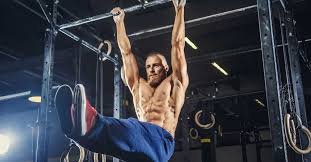
Exercise is widely known for its numerous health benefits, including boosting cardiovascular health, improving mood, and promoting overall well-being. But could your workout routine be affecting your hair? For many, the idea that exercise could cause hair loss seems contradictory, considering it promotes good circulation and reduces stress. However, there are some instances in which exercise may indirectly lead to hair thinning or shedding.
Let’s explore how exercise can impact your hair, and what you can do to minimize any negative effects.
Stress-Induced Hair Loss (Telogen Effluvium)
While regular exercise typically helps reduce stress, overtraining can have the opposite effect. When you push your body too hard without allowing it sufficient time to recover, it can trigger a condition known as telogen effluvium, a temporary form of hair loss. This happens when your hair follicles prematurely enter the resting (telogen) phase, leading to increased shedding.
This is more common in individuals who engage in excessive exercise, especially without proper rest and recovery. If your workout routine is causing significant physical or emotional stress, it could lead to temporary hair thinning.
Solution: Ensure you balance your exercise routine with adequate rest, recovery time, and stress management techniques like yoga or meditation. A well-rounded approach to fitness will help you maintain both physical and hair health.
Nutritional Deficiencies
Exercise, particularly when combined with a restricted or inadequate diet, can lead to nutritional deficiencies, which may contribute to hair loss. Key nutrients like iron, zinc, and vitamins (such as vitamin D and B-complex vitamins) play a significant role in maintaining healthy hair growth. A lack of these essential nutrients can cause hair to become weak and thin.
Intense exercise increases the body’s demand for these nutrients, so if your diet isn’t providing enough of them, it may negatively affect your hair.
Solution: To support both your fitness and hair health, focus on a well-balanced diet rich in lean proteins, vegetables, fruits, and whole grains. You may also consider consulting a nutritionist to ensure you’re meeting your nutritional needs.
The Impact of Sweat on the Scalp
Sweating is a natural response to exercise, helping to regulate body temperature. However, when sweat accumulates on the scalp, it can mix with oils and dirt, potentially clogging hair follicles. This can create an unhealthy environment for hair growth and could contribute to thinning over time.
While sweat alone doesn’t cause hair loss, failing to cleanse the scalp regularly can lead to scalp issues such as dandruff, folliculitis, or seborrheic dermatitis—all of which can impair hair health.
Solution: After exercise, make sure to wash your hair regularly to remove sweat, oils, and buildup. This will keep your scalp clean and prevent clogged follicles from hindering hair growth.
Hormonal Imbalances from Intense Exercise
For some individuals, particularly athletes or those who engage in extreme exercise regimens, intense physical activity can disrupt hormone levels. Conditions like the female athlete triad, which involves an imbalance in energy availability, menstrual function, and bone health, can sometimes lead to androgenic alopecia, a condition that causes thinning hair.
Hormonal changes caused by excessive exercise can result in hair thinning or shedding, particularly if the body isn’t getting enough energy or nutrients to support both exercise and reproductive health.
Solution: Ensure that your exercise routine is balanced with a diet that provides adequate calories and nutrition to support both your fitness and overall health. For those experiencing irregular periods or signs of hormonal imbalance, it may be helpful to consult a healthcare professional.
The Role of Hydration
Proper hydration is crucial for maintaining healthy skin, scalp, and hair. Dehydration, often a result of intense exercise without adequate fluid intake, can leave your hair dry, brittle, and more prone to breakage.
Solution: Drink plenty of water before, during, and after your workout to keep your hair and body hydrated. This will help maintain the moisture levels in your hair and keep it looking shiny and healthy.
Conclusion
While exercise itself doesn’t directly cause hair loss, certain factors related to intense physical activity can contribute to temporary hair shedding or thinning. Managing your exercise routine by balancing it with proper rest, nutrition, hydration, and scalp care is key to maintaining both your fitness and hair health.
If you experience significant or prolonged hair loss, it’s important to speak with a healthcare provider or dermatologist to rule out any underlying medical conditions. By taking a holistic approach to both your fitness and overall well-being, you can enjoy the benefits of exercise without compromising your hair health.
